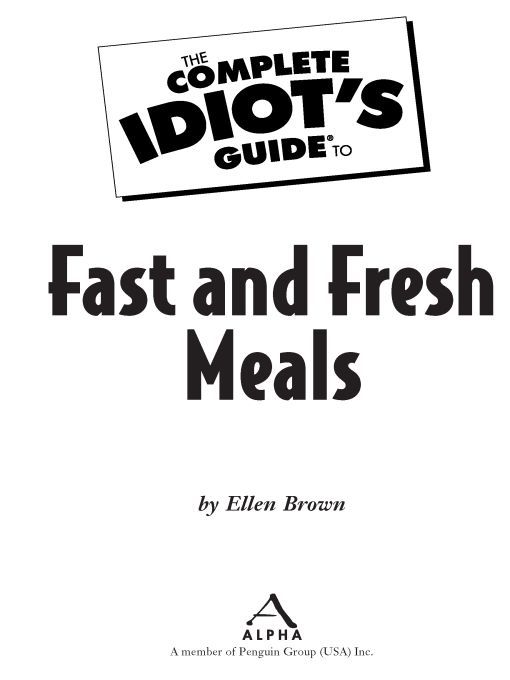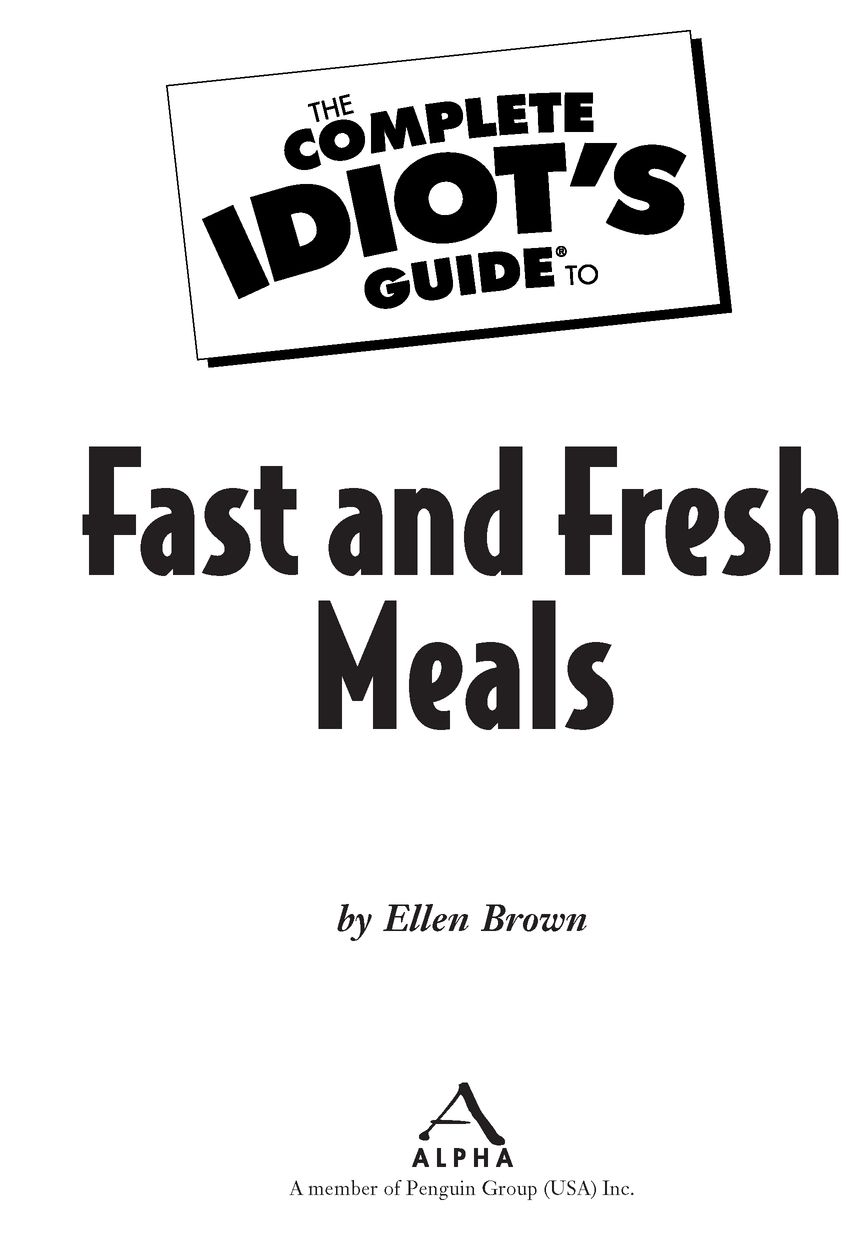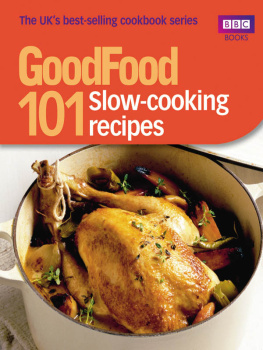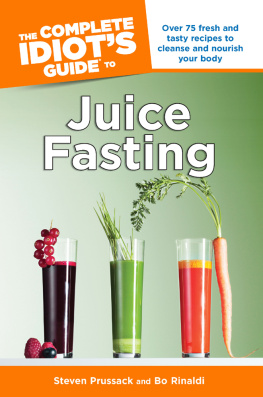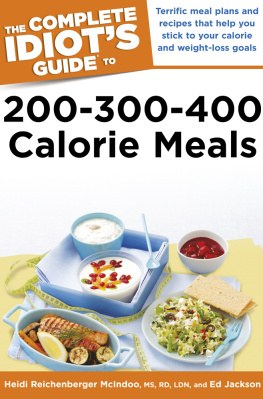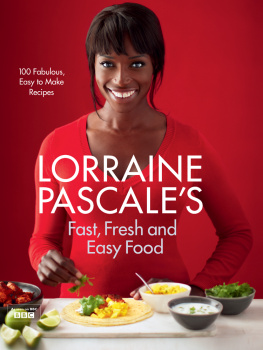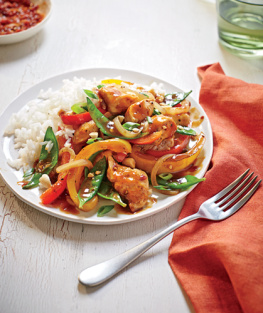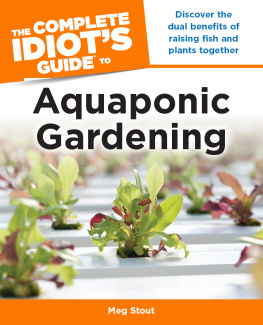Table of Contents
This book is dedicated to the memory of my father, who introduced me to the tantalizing world of foods with childhood trips to Chinatown.
Introduction
We seem to have gotten away from the idea of eating fresh food. At one time, though, thats all there was. People ate whatever crops the land around them yielded. And everything availablefrom eggs and chickens to vegetables to fishwas organic. (Of course, this was before twentieth-century pesticides, herbicides, and other dangerous chemicals were invented.) At that time, the definition of convenience food could be found in the cupboards: jars of jams, jellies, and pickles that were put up during the summer for later enjoyment.
But during the last century, progress was viewed as getting as far away from fresh food as possible. After World War II, the countrys dependence on canned food was supplemented by the ever-growing options of frozen food. The size of refrigerators shrank as appliance manufacturers lured customers by promising enough freezer space so the average household would only have to shop once every few weeks. The food groups seemed to evolve into take-out, eat-out, frozen, and canned.
But today that seems to be changing for the better. In this century, were taking pleasure in turning back the clock by eating food in season and reveling in the joys of fresh foods. In the past 10 years, the trend toward the expansion of space given to frozen foods in supermarkets has been halted. The section now gaining space the most rapidly is the produce section. And thats the way it should be.
The dishes in this book are real food. Theyre not made with tons of convenience products that list more chemicals on their labels than words recognizable as foods; you wont find a can of cream-of-something soup anywhere. Theyre made with healthful vegetables and vivid fresh fruitsthe foods we should be eating to fulfill the 5 to 9 servings a day recommended for our overall good health.
There are times that using minimally processed ingredients can save time, and not diminish the quality of the completed dish. I do give such foods as canned tomatoes and preroasted red bell peppers as alternatives to starting from scratch with many recipes, and the beans in all recipes are canned to save the long amount of time it takes to begin a dish with dried beans. In the same way if you dont have a fresh herb on hand, theres no reason to eliminate a recipe; just use a dried version.
But theres another need in todays fast-paced life, and these recipes acknowledge it. We want fresh food, but we want it fast. Time is our most precious commodity, even though commodities take time to prepare. And as youll see when cooking the recipes in this book, fresh and fast can be joined, and joined deliciously.
Youll notice that theres no time frame given as part of this books title. Im not promising that you can have dinner on the table in less time than it takes to watch the evening news. But I do promise you that the recipes are straightforward so your actual involvement with cooking is less than 30 minutes in all cases.
What underpins this book is my 30 years as a food writer, knowing what foods cook fast. There arent any recipes for beets, although theyre one of my favorite vegetables. They take too long to cook properly. Nor are there any slowly braised stews.
What you will find is a wide range of cooking methods, all of which are fast because they utilize high heat. There are sautes, stir-fries, and grilled dishes. But there are not any fried foods, although thats another high-heat cooking method. While there are high-fat foods in the book that use cheese or cream, the goal is to trim fat when possible.
If youre one of the vast majority of Americans who want to eat a more healthful diet, this book is for you!
How This Book Is Organized
The book is divided into seven parts:
In Part 1, Fundamentals of Fast Food, I give you information on equipment as well as cooking skills to make you a more efficient cook. I offer tips for choosing equipment to make life in the kitchen easier and knife skills and ways to speed up the chopping and dicing that are part and parcel of fresh cooking.
Part 2, Beginning Hors dOeuvres and Appetizers, contains a kaleidoscope of small dishes that give any meal a delicious start. There are chapters on dips and hors doeuvres, many of which start out as big batches to minimize labor. Also featured are recipes for small appetizers and soups for all seasons.
Part 3, Casual Cuisine, includes recipes to make everyday meals special at all times of day. Youll find recipes for breakfast and brunch dishes, many of which would also work as a supper. Also in Part 3 is a chapter on hot sandwiches and quiches, and one on pastas and pizzas.
Part 4, Salad Daze, encompasses everything cold and crunchy. Theres a chapter on small side salads and some distinctive dressings to elevate the basic tossed green salad to new levels of elegance. Youll also find ways to satisfy a carb craving with the small pasta, rice, and potato salads in Chapter 12. Part 4 ends main dish salads, often featuring cooked protein with raw vegetables and some fruits, too.
Part 5, Redefining Fast Food, gives you ways to have a great dinner on the table fast. The chapters include recipes for seafood, poultry, and meats, prepared with the herbs and spices of Asia, the Mediterranean, and most of the remainder of the world.
Part 6, Great Grills, is simply that. Here youll find recipes for foods that are quickly seasoned and then topped with delicious relishes and sauces. Youll also find marinated dishes, and burgers made with everything from lentils to lamb.
Part 7, Desserts on a Deadline, is full of quick and easy recipes to end meals with a sweet finale and flourish, whether you crave fresh fruits, anything chocolate, or baked goods like homey cobblers and creative cookies.
In the appendixes, youll find a glossary to expand your knowledge of food words. Thats followed by an appendix of charts to help you convert measurements to or from the metric system, and one giving weights and measures of ingredients to ease your shopping.
Extras
In every chapter youll find boxes that give you extra bits of information:
Fast Talk
Cooking has a language all its own. Look to these boxes for quick definitions.
Fresh Ways
Look here to find tips about specific recipes or to boost your general cooking knowledge.
Speedy Solutions
Check these boxes for timesaving tips on shopping, food prep, cooking, or kitchen cleanup.

